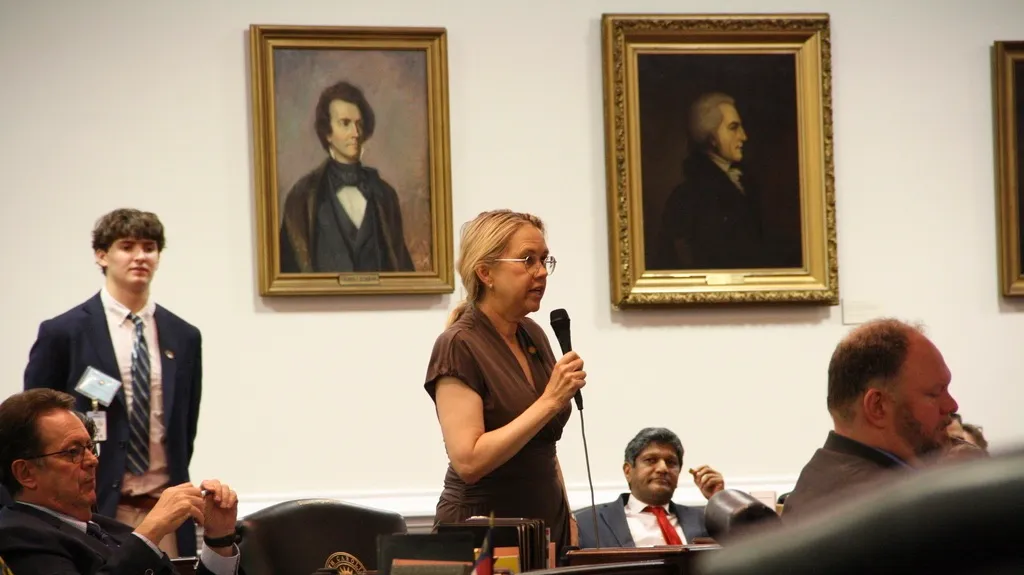August 18, 2011
Mass. Inmate: Appeals Ruling Supports Sex Change
Kilian Melloy READ TIME: 2 MIN.
A convicted murderer who is suing for a sex-change operation says a recent federal appeals court ruling bolsters her claim that Massachusetts prison officials are violating her constitutional rights by refusing to provide the surgery.
Michelle Kosilek, born Robert, has been trying for more than a decade to force the Department of Correction to provide the surgery.
Kosilek's lawyers plan to make new arguments Thursday based on a ruling by the 1st U.S. Circuit Court of Appeals in the case of another transgender inmate in Massachusetts.
In that case, the 1st Circuit agreed that the state Department of Correction had shown deliberate indifference to Sandy Battista's medical needs by repeatedly denying her request for female hormone treatments.
The department had justified the denial of hormone therapy for Battista by citing security concerns. But the court rejected that, finding that the security claims had been "undercut by a collection of pretexts, delays and misrepresentations."
Prison officials also have cited security concerns in the Kosilek case, saying that allowing her to have the surgery could make her a target for sexual assaults by other inmates.
Robert Kosilek was convicted of killing his wife in 1990. Kosilek got a name change, has received female hormone treatments and has been living as a woman in an all-male prison.
Kosilek, 62, first sued the Department of Correction in 2000. Two years later, U.S. District Judge Mark Wolf ruled that Kosilek was entitled to treatment for gender-identity disorder but stopped short of ordering surgery. Kosilek renewed her request in 2005, saying the hormone and hair-removal treatments were not enough to relieve her depression.
Kosilek's lawyers requested a status conference with Judge Wolf to discuss the Battista ruling as well as an executive order signed by Gov. Deval Patrick earlier this year banning state agencies from discriminating against transgender people.
Kosilek's lawyers, Frances Cohen and Joseph Sulman, wrote in court papers that she "suffers from terrible stress and anxiety while she waits for a resolution of this case."
In agreeing to the hearing, Wolf called the Battista ruling and executive order "relevant, recent authorities."
Battista's lawyer, Neal Minahan, said the 1st Circuit found that the Department of Correction "can't use security as a 'get out of jail free' card."
"Security is a consideration, but it has to be based on some professional judgment. You can't just say security and that's the end of it," Minahan said.
If Kosilek wins her lawsuit, she would be the first inmate in the country to receive a taxpayer-funded sex-change operation.
Arthur Leonard, a professor at New York Law School who has written extensively on legal issues affecting lesbian, gay, bisexual and transgender people, said most of the lawsuits filed by inmates around the country have focused on requests for hormone treatments, although some, like Kosilek, have taken it a step further and asked for sex-reassignment surgery. Leonard and other experts say there has not been a case yet where a prison system has been ordered to provide a taxpayer-funded sex-change operation to an inmate.
"Partly, it's the expense. Partly, I think it's that courts have not yet been persuaded in the few cases where it's come up that it's medically necessary to go that next step," Leonard said.
Kilian Melloy serves as EDGE Media Network's Associate Arts Editor and Staff Contributor. His professional memberships include the National Lesbian & Gay Journalists Association, the Boston Online Film Critics Association, The Gay and Lesbian Entertainment Critics Association, and the Boston Theater Critics Association's Elliot Norton Awards Committee.


